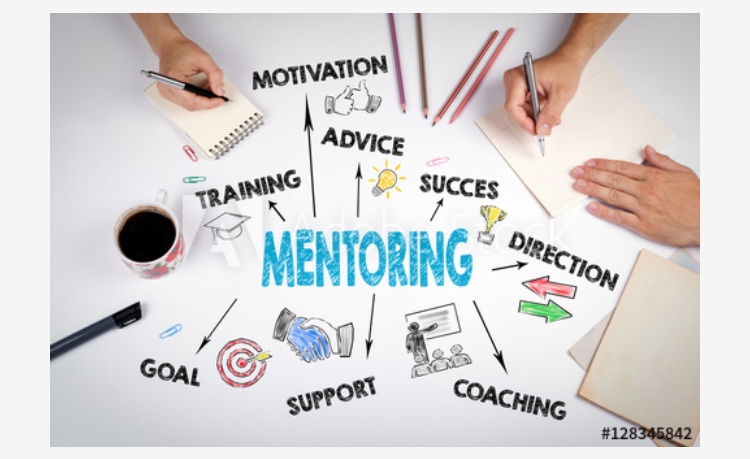Mentoring Smarter, Not Harder
go.ncsu.edu/readext?638933
en Español / em Português
El inglés es el idioma de control de esta página. En la medida en que haya algún conflicto entre la traducción al inglés y la traducción, el inglés prevalece.
Al hacer clic en el enlace de traducción se activa un servicio de traducción gratuito para convertir la página al español. Al igual que con cualquier traducción por Internet, la conversión no es sensible al contexto y puede que no traduzca el texto en su significado original. NC State Extension no garantiza la exactitud del texto traducido. Por favor, tenga en cuenta que algunas aplicaciones y/o servicios pueden no funcionar como se espera cuando se traducen.
Português
Inglês é o idioma de controle desta página. Na medida que haja algum conflito entre o texto original em Inglês e a tradução, o Inglês prevalece.
Ao clicar no link de tradução, um serviço gratuito de tradução será ativado para converter a página para o Português. Como em qualquer tradução pela internet, a conversão não é sensivel ao contexto e pode não ocorrer a tradução para o significado orginal. O serviço de Extensão da Carolina do Norte (NC State Extension) não garante a exatidão do texto traduzido. Por favor, observe que algumas funções ou serviços podem não funcionar como esperado após a tradução.
English
English is the controlling language of this page. To the extent there is any conflict between the English text and the translation, English controls.
Clicking on the translation link activates a free translation service to convert the page to Spanish. As with any Internet translation, the conversion is not context-sensitive and may not translate the text to its original meaning. NC State Extension does not guarantee the accuracy of the translated text. Please note that some applications and/or services may not function as expected when translated.
Collapse ▲Written by: Kendra Dowen
Mentoring has been a social phenomenon since the 70s, attracting more and more attention as the years move on. Community leaders, parents, politicians, youth professionals, educators and upper management have supported these programs on both micro and macro levels . Since the 70s the research around mentoring has deemed it successful at all levels; however mentoring has been used primarily as an early intervention to help low-income youth overcome the obstacles in their life due to the socioeconomic status of their family and community. Research has suggested that adolescents from lower income families and/or communities have less access to mentors during critical development. Not only does this population of youth have less access to mentors but they also lack the same access to social capital and resources that middle-class youth innately have. This lack of access to comparable resources negatively affects their academic success both in high school and post-secondary education, however, mentoring can help bridge that gap via mobilized social capital.
Mobilized social capital. What is it? How can we help the youth in our lives gain it? Mobilized social capital is best explained in this YouTube video. It is the idea that our relationships with people (resources) in our lives can be mobilized or utilized to benefit the youth we are mentoring – giving them access to our network of people and increasing their social capital. Some personal examples from my mentoring experiences are:
- Student 1, a sophomore enrolled in continuation school (credit recovery) expressed an interest in learning to tattoo – although I do not know any local tattoo artists personally, I shared this information with a friend who was born/raised and currently lives in the area. This friend reached out to a friend who owns a tattoo shop in the area and told me that when the kid turns 16 we can connect him with the tattoo shop owner to get him a paid job cleaning up around the shop and learning about the industry.
- Student 2, a high school senior living in a low-income community, has a desire to break into the cannabis industry upon graduation from High School. Again, I have no connections to the industry in the area but shared this information with another friend who I know has connections – because of my relationship with my friend, upon graduation Student 2 has guaranteed work, working on a hemp farm to gain experience and money to help pay for his cannabis classes at a private trade program in Northern California.
 Despite not having the connections myself, I am able to utilize my circle to assist me in mentoring low-income youth and giving them access to resources that their middle and upper-class youth have through their parents and communities. The same works when mobilizing social capital to help with college. I have 4 students I am currently mentoring who need to complete the FASFA for school in January. I am not knowledgeable about the process and application; however, I have friends who work in financial aid. With a phone call, I now have a professional coming to run a short workshop and help these youth/their parents fill out the FASFA.
Despite not having the connections myself, I am able to utilize my circle to assist me in mentoring low-income youth and giving them access to resources that their middle and upper-class youth have through their parents and communities. The same works when mobilizing social capital to help with college. I have 4 students I am currently mentoring who need to complete the FASFA for school in January. I am not knowledgeable about the process and application; however, I have friends who work in financial aid. With a phone call, I now have a professional coming to run a short workshop and help these youth/their parents fill out the FASFA.
Leveling the playing field for low-income youth is important and something we, as mentors and youth professionals, can easily do by utilizing your circle, reaching out to those who take an interest in your mentoring/working with youth when resources are needed and by asking for favors. If we don’t advocate for these youth, who will? I challenge you, in the next 7 days, mobilize your social capital for the development and success of the youth you work with.
Questions for Extended Dialogue (for youth-serving professionals)
|




